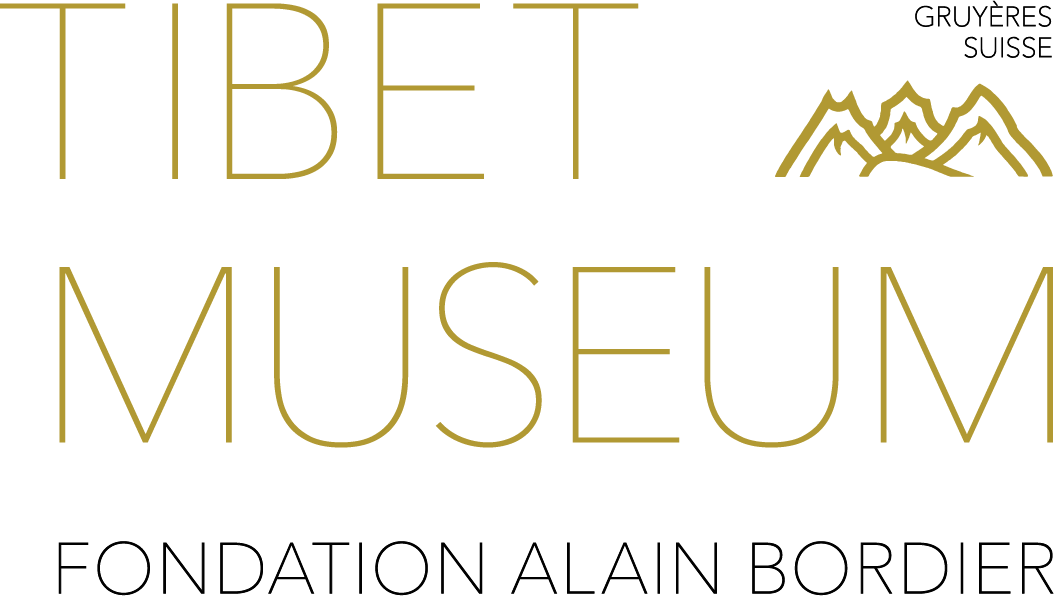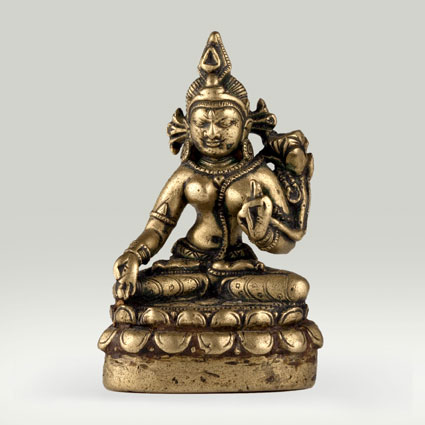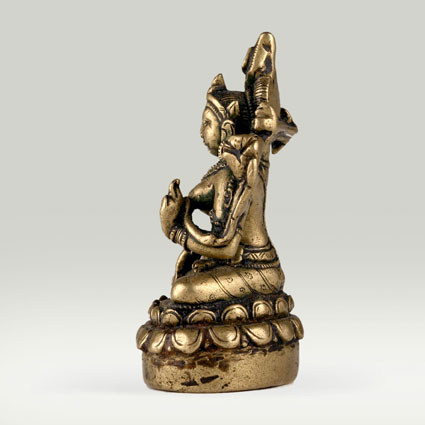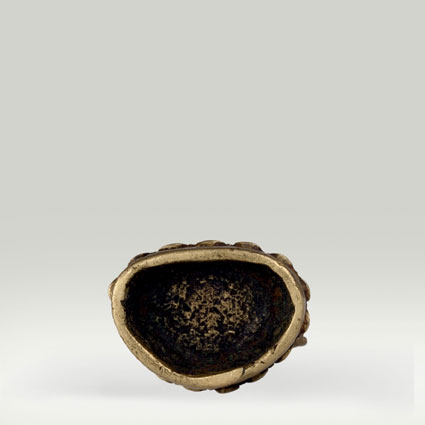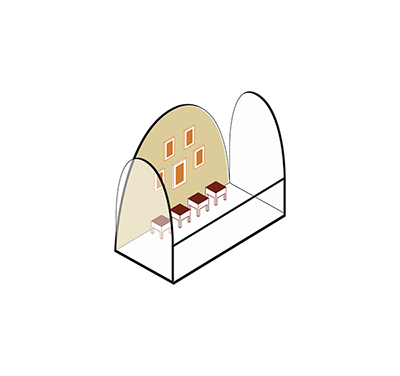ABS 086
Code: ABS 086
Country: India (north-east)
Style: Late Pala Style
Date: 1050 - 1150
Dimensions in cm WxHxD: 3 x 4.8 x 2.3
Materials: Brass
Sita Tara - the “White Tara”
Sita Tara – the White Protectoress is seated in the diamond attitude on a double lotus pedestal. She extends the right hand in the gesture of generosity and holds a water lily (utpala) with the uplifted left hand. Sita Tara is characterized by the additional five eyes on the forehead, on both hands and the soles of the feet. Her right hand forms the mudra of generosity, and with her left hand she shows the mudra of refuge-granting (sharanagamana-mudra). The three raised fingers of her left hand represent the three jewels: Buddha, Dharma and Sangha. She is one with her mantra: OM TA RE TU TARE TURE SOHA. Lay people can call upon her for help in times of need by simply uttering her name with devotion.
Tara is a boddhisattva who, according to tradition, vowed to manifest as a female until all beings are liberated from samsara. The devotion for Tara was popularised in Tibet by the Indian scholar Atisha (982-1054) from Vikramashila Monastery, who taught in Tibet from 1045 until his death.
Tara is a generic name for an Indian deity described in Tibetan Buddhism under 21 different forms, each with a different appearance and function, and the Green Tara (literally the “dark Tara”) is the source of them all. She is the consort of the Buddha Amoghasiddhi, and therefor belongs with the family of activity, but she can also be attributed to Buddha Amitabha and thus to the lotus family.
Sita Tara – the White Protectoress is seated in the diamond attitude on a double lotus pedestal. She extends the right hand in the gesture of generosity and holds a water lily (utpala) with the uplifted left hand. Sita Tara is characterized by the additional five eyes on the forehead, on both hands and the soles of the feet. Her right hand forms the mudra of generosity, and with her left hand she shows the mudra of refuge-granting (sharanagamana-mudra). The three raised fingers of her left hand represent the three jewels: Buddha, Dharma and Sangha. She is one with her mantra: OM TA RE TU TARE TURE SOHA. Lay people can call upon her for help in times of need by simply uttering her name with devotion.
Tara is a boddhisattva who, according to tradition, vowed to manifest as a female until all beings are liberated from samsara. The devotion for Tara was popularised in Tibet by the Indian scholar Atisha (982-1054) from Vikramashila Monastery, who taught in Tibet from 1045 until his death.
Tara is a generic name for an Indian deity described in Tibetan Buddhism under 21 different forms, each with a different appearance and function, and the Green Tara (literally the “dark Tara”) is the source of them all. She is the consort of the Buddha Amoghasiddhi, and therefor belongs with the family of activity, but she can also be attributed to Buddha Amitabha and thus to the lotus family.
